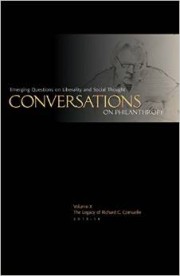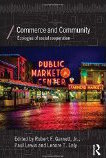Changing the Model of Charity
If we are ever to respect families that through sheer resourcefulness and determination survive under the most horrific conditions, we need to work with funders to change the charity system. If funders require the programs they fund to value the strengths, ideas, and initiative of these families, rather than just the needs, service providers will follow.
Every person and every family has its strengths and weaknesses. A large majority of people who are low-income are amazingly resourceful people who work hard, contribute to this country and deserve respect, not denigration. Everyone needs someone to believe in them. By changing how we “help” we will send a strong affirmative message of trust and respect.
Maurice Lim Miller of the Family Independence Initiative has a terrific essay at Huffington Post Impact on the need to nurture the resilience and existing assets of low-income families as a route to improving their financial situation. Referencing the work of John McKnight, the guru of asset-based community development, Miller observes that “The best and most culturally relevant solutions are imbedded in community and people build and strengthen their social networks when they look to friends and neighbors who have successfully faced similar challenges.”
The Philanthropic Enterprise concurs with Miller: “There is meaningful work to be done to open up philanthropy to fund this new approach that puts much more trust in the capacity of low-income people.”
We would add that a complementary process is to engage philanthropy in supporting our free market system, which is weakened both by those who believe it is inherently less moral than some form of state socialism and by those within the system who engage in criminal behavior. A competitive market unburdened by heavy regulatory costs and taxation benefits low-income families by extending the purchasing power of their dollars (the competitive nature of markets helps lower prices, especially for commodity goods). A critical role for philanthropy should be to help connect low-income families to the extended order of the marketplace, enhancing their ability to make positive contributions through entrepreneurship and employment. Philanthropy should be asking not only how to move our charitable models away from bureaucratic checklists toward a more discursive discovery process that respects the knowledge and skills people bring to the table but also how to spur disruptive innovation in education.




